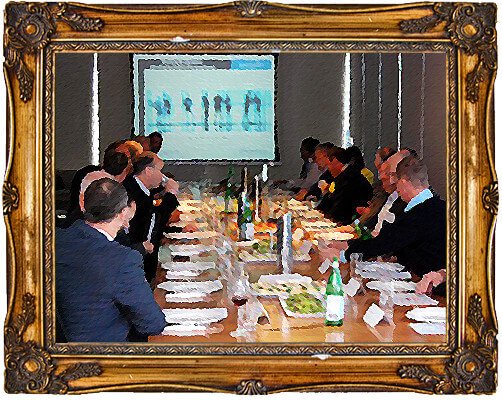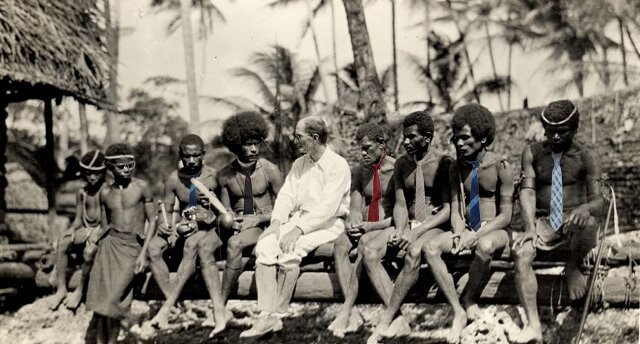The Enduring Value of Anthropology For Business

A LOSING PROPOSITION
Throughout the years many fields outside of anthropology have integrated ethnography as part of their disciplinary practice. However, even while utilizing it within epistemologies that differ from anthropology’s own, anthropological concepts derived from nearly 150 years of disciplinary exploration are generally acknowledged and understood. Within the growing arena of anthropology in business, a negotiation is taking place between business and anthropological discourses and practices, but the adoption or even adaptation of ethnographic practices is still far behind the piece-meal co-optation of an attempted streamlining of its processes within business. Jonathan Klein, a business professor at the University of Southern California, explains that job de-skilling “in many respects mimics rather than applies the learning process… it simply narrows the application of current skills… undermin[ing] the very efficiency for which it is intended” (Klein 2000:78, 80). Practicing anthropologists warn that ethnography has undergone a similar process of de-skilling within business contexts (see Lombardi 2009).
While working as a project manager at E-Lab in the 1990s, Christina Wasson was tasked with training designers, technologists, and other researchers to conduct ethnography. As an early adopter of ethnography within design, the firm’s unique methodology set it apart, however, Wasson found that “the need to analyze those behaviors and situate them in their cultural context is poorly understood, even though these activities are essential parts of developing a model of user experience that leads to targeted and far-reaching design solutions” (Wasson 2002:87). While difficult to quantify, nevertheless, insightful analysis is both the means for situating sites as places of action and generating meaningful value from them for businesses to utilize.
New strategies and trends in business and design that derive from anthropological origins are represented as efforts to empathize with users and consumers by walking in their shoes. However, researchers that have been educated in a four-field anthropology program have developed habits of thought for analyzing what is generally accepted or understood and expand or reframe social and cultural knowledge through theoretical and conceptual frameworks (see Ensworth 2013:61). As Sunderland points out, anthropologists “can help clients get beyond an impasse or out of a quagmire because we provide a new way of thinking about or framing an issue” (2013:128).
In simple terms, anthropology is the study of culture (global culture, national culture, subculture, family culture) and is most commonly known for developing the ethnographic method that has set the standard for observational forms of research. Beyond just taking notes and snapping pictures of people, however, anthropology addresses complex questions that are a prerequisite or that logically follow from this form of investigation:
- What is culture?
- Where does culture come from?
- What influences culture and cultural change?
- How do you compare cultures?
- How do cultures interact and influence each other?
- How do you go about recording and describing cultures?
- How does culture influence people’s thoughts, feelings, and actions?
Anthropology is an interpretive science with over 150 years of theory and analysis in this area and contains its own set of subfields, movements, and philosophical branches. Through their training, anthropologists enter into the field acutely aware of what they don’t know and are equipped with an analytical toolkit that covers the discipline’s investigative perspectives across:
- Cultural Anthropology – An analysis of culture as “shared and negotiated systems of meaning informed by knowledge that people learn and put into practice by interpreting experience and generating behavior” (Lassiter 2009:). While many aspects of cultural systems exist beyond what can be articulated on a conscious level or observed in a surface-level investigation, emphasis is placed on the “natives point of view.”
- Linguistic Anthropology – An analysis of the organization and classification of human languages as distinct systems of interconnected signs that influence human thoughts and perceptions, as well as how language reflects culture-based world views and the ways in which it mediates reality.
- Archaeology/Material Culture – The analysis of artifacts, such as tools, household items, art, religious objects, and architectural structures, and their organizational and symbolic place within the cultures that use them.
- Physical Anthropology – An analysis of the evolution of humans and their cultural systems, focusing on biological and ecological factors.
Popular discourses sometimes seem to make a false distinction between the work of generating, or applying, theory and their correlating methods, as if one can be struck from consideration of the other under the assumption that practice – particularly when conducted outside of academia – is a categorically different matter altogether. Applied anthropology takes this breadth of knowledge and translates findings into actionable insights towards real-world applications. Business anthropology and its many emerging subfields help businesses to understand their customers, users, and employees in order to create better products, services, and systems. The danger of de-skilling the ethnographic process down to just going out into the field and collecting data on whatever is observed or perceived, on the other hand, is the production of findings that are generated “through already constituted frames of understanding” (Cefkin 2010:50), which does little to contribute much beyond the validation of assumptions and fleshing out the details of those frames.
The value of hiring a trained anthropologist to conduct ethnographic fieldwork and qualitative research is a forged ability to circumvent – to the extent that it is humanly possible – the (perfectly) natural human inclination to interpret and compare the world through the standards as seen through one’s own sociocultural lenses. In furtherance of those efforts, anthropologists also strive to critically and self-consciously reflect on the theoretical and ethical issues embedded in the construction of ethnographic representations. Through the development of this informed perceptual negotiation, along with an analytical toolkit across the disciplines investigative perspectives, anthropologists are able to go beyond what can be articulated on a conscious level or observed in a surface-level investigation. Thoroughly analyzing implicit social and cultural knowledge that have demonstrated uses for revealing opportunities and uncovering valuable insights into users, consumers, and employees is the purview of applied anthropologists working in business.
Works Cited
Cefkin, Melissa. 2010. “Practice at the Crossroads: When Practice Meets Theory, A Rumination.” Proceedings of the 6th Ethnographic Praxis in Industry Conference2010:46-58.
Ensworth, Patricia. 2013. “Ethnography for Systems Development: Renovating the Legacy.” In Advancing Ethnography in Corporate Environments, edited by B. Jordan, 56-75. Walnut Creek, CA: Left Coast Press.
Klein, Jonathan I. 2000. Corporate Failure By Design: Why Organizations Are Built To Fail. Westport, CT: Greenwood Publishing.
Lassiter, Luke Eric. Invitation To Anthropology, 3rd edition. 2009.
Lombardi, Gerald. 2009. “The De-Skilling Of Ethnographic Labor: Signs Of An Emerging Predicament.” Proceedings of the 5th Ethnographic Praxis in Industry Conference2009:46-54.
Sunderland, Patricia. 2013. “The Cry for More Theory.” In Advancing Ethnography in Corporate Environments, edited by B. Jordan, 122-35. Walnut Creek, CA: Left Coast Press.
Wasson, Christina. 2002. “Collaborative Work: Integrating the Roles of Designers and Ethnographers.” In Creating Breakthrough Ideas: The Collaboration of Anthropologists and Designers in the Product Development Industry, edited by S. Squires and B. Byrne, 71-90. Westport, CT: Bergin & Garvey.
Recommend0 recommendationsPublished in Business Anthropology, Employer Resources



Responses